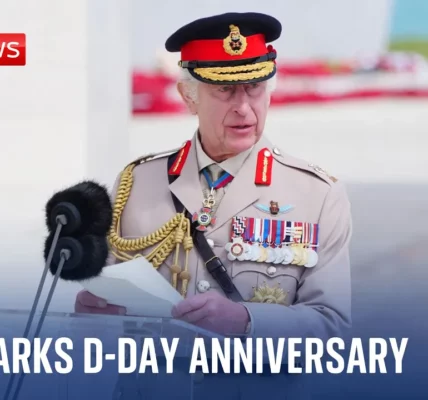Israel’s Political Turmoil: Netanyahu’s Defiance Amidst Hostage Crisis

As Israel grapples with a growing political crisis following the deaths of hostages in Gaza, Prime Minister Benjamin Netanyahu faces mounting pressure from both domestic and international fronts. This article delves into the nation’s turmoil, the public’s response, and the implications for Israel’s future.
Introduction
The recent events in Israel have plunged the nation into a state of unrest. Following the tragic deaths of six hostages, Prime Minister Benjamin Netanyahu’s plea for forgiveness has been overshadowed by his firm stance against Hamas. The ongoing conflict, the rising death toll in Gaza, and the increasing pressure from international allies, particularly the United States, have created a complex and volatile situation. This article will explore the various dimensions of this crisis, including public sentiment, political ramifications, and the challenges ahead for Netanyahu’s government.
The Crisis Unfolds
In the wake of the recent hostage crisis, Netanyahu’s government has faced severe backlash. Public protests erupted as families mourned their loved ones, and citizens demanded accountability and action from their leaders.
Hostage Deaths and Public Outcry
The funeral services for the six hostages, discovered dead in Gaza, ignited widespread sorrow and anger among the Israeli public. Many families expressed feelings of helplessness and frustration, questioning the government’s efforts to secure their loved ones’ release.
- Mass protests across Israel, with hundreds of thousands participating.
- Calls for Netanyahu to resign or change his approach towards Hamas.
- Public sentiment shifting towards a demand for a ceasefire.
International Pressure Mounts
As protests grew, international leaders also began to voice their concerns regarding Israel’s approach to the conflict.
Criticism from Allies
U.S. President Joe Biden has openly criticized Netanyahu for failing to prioritize hostage negotiations. The UK also made headlines by suspending some arms exports to Israel, signaling a significant shift in diplomatic relations.
- U.S. President Biden’s call for more decisive action on hostages.
- The UK’s symbolic arms export suspension as a response to the humanitarian crisis.
- Growing frustration among international allies regarding the ongoing conflict.
Netanyahu’s Position and Public Sentiment
Despite the mounting pressure, Netanyahu remains steadfast in his approach, insisting that the only resolution to the conflict is the complete dismantling of Hamas.
Defiance in the Face of Protests
In a recent press conference, Netanyahu expressed no intention of altering his military strategy, despite the overwhelming public demand for a ceasefire. His refusal to compromise has left many citizens feeling alienated and frustrated.
Future of Netanyahu’s Government
With protests intensifying and public sentiment increasingly negative, questions loom over Netanyahu’s political future. Will he be able to withstand the pressure, or will the tide of public opinion force a change in leadership?
The Broader Implications for Israel
The ongoing conflict raises significant questions about Israel’s future, both politically and socially. The public’s growing discontent could lead to substantial changes in governance and foreign policy.
Potential Outcomes
Several potential scenarios could play out in the coming weeks and months:
- Increased public protests leading to a potential change in government.
- International diplomatic efforts result in a ceasefire agreement.
- Continued military action exacerbating the humanitarian crisis in Gaza.
Conclusion
The situation in Israel is precarious, with rising tensions both at home and abroad. As Netanyahu doubles down on his military strategy, the ramifications for his administration and the Israeli public remain uncertain. The coming days will be crucial as the nation grapples with its identity and future amidst this turmoil.
For further insights into the ongoing crisis and its implications, stay tuned to our coverage.
“`




